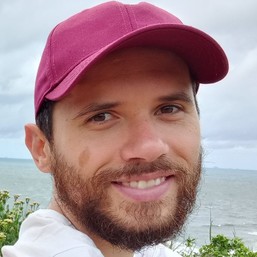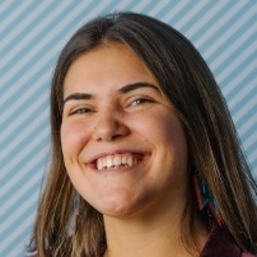
Stop the invasion of Big Oil at the university
If universities aim to defend in human rights, they must cut ties with big oil companies. That’s what PhD students Bruno Bettega Pergher and Mariana Riquito Pereira argue. “Would you accept huge installations in your country or neighborhood that pollute the water and air to the point of causing respiratory diseases and leukemia?”
We engage in action to “Decolonize, Democratize, Decarbonize”. These are calls for liberation, not simply policies around diversity and inclusion. Our universities are already occupied by the interests of capital and power – competitive, unsafe, all-white-&-male spaces, destructive corporations, and precarious neoliberal contracts; these are “business as usual” within our universities. We fight for a transformative vision, for a different perception of what universities can be. Let’s take the case of extractivistExtractivism is the removal of natural resources particularly for export with minimal processing. industries like Big Oil, for example, fossil fuel company Shell.
Climate Justice
If we listen attentively to local, rural and Indigenous communities all around the world - those who are doing the most to combat climate change and preserve ecological relations - it becomes evident that their interests are in conflict with those of extractivist corporations, especially Big Oil. So many communities have had their lives and livelihoods disrupted by big fossil fuel corporations like Shell, whose operations undermine these communities’ health, well-being, livelihoods, land rights, ecosystems and overall their right of self-determination. From Groningen to the lands of the Mapuche, in Argentina, from Apartheid South Africa to Ogoniland, in Nigeria, communities struggle with the presence or threat of extractivist projects like those from Big Oil on their (ancestral) lands, waters and bioregions.
We should easily understand why they oppose fossil projects like fracking: would you accept huge installations in your land (or neighborhood) that pollute the water and air to the point of giving you respiratory diseases, leukemia, killing most of the fish and contaminate the soil to the point of making it barren? If we wouldn’t accept these destructive projects close to us, how can we be silent when they are destroying other areas and peoples?
Occupations
Universities must cut all their ties with invaders like Big Oil and other ecologically harmful companies if they are truly committed to ensure a future for all and are true to their aim of defending human rights. How can we defend progressive values if we are legitimizing and working with one of the most unjust industries of all times?
We are involved with students and staff of the UvA, and we have been talking to students, staff and administrators at the UvA and other universities for over two years now. The petition for the UvA to stop fossil collaborations and the recent liberation struggles at university occupations in the Netherlands and other countries with the same goal show that thousands of people (not just activists) are willing to fight this catastrophic status quo.
Students, staff and other protesters demanding autonomy and an end to these blood-stained collaborations have been met with brutal response by the executive boards, who enabled the police and evict protesters, usually after a few hours. In Amsterdam, the eviction on January 16 was particularly violent, the riot police invaded in large numbers: 50 cops, at least eight vans and two buses, and one helicopter. Protesters got covered in bruises, and one person needed to go to the hospital due to police brutality. Climate wreckers, abusers of human rights and Indigenous rights are welcome at our universities, while dissenting voices, even those of students and staff, are met with repression and hypocrisy. Our universities must be more than a puppet for the market, we need to serve people and planet, not brutal corporations and short-term profit.
Crises
The global challenges we are facing do not end with Big Oil. We are currently living through the midst of a climate, ecological, social, political and economic crisis. That is because our current socioeconomic system is built to favor profit over people and the planet. Short-term earnings for a financial, economic and political elite are favored at any cost – in detriment of people’s well-being, workers’ rights, democratic freedoms and regimes, people’s right to self-determination and the preservation of our natural world.
Historically, certain people and lands were constructed as inferior and expendable – women, racialized populations, Indigenous Peoples, poor and marginalized communities etcetera – and have thus been exploited and destroyed for the sake of some other’s growth and “prosperity”. This has caused the collapse of local communities, the “underdevelopment” of marginalized, poor countries, starvation, the constant rise of social inequalities, and, of course, climate and ecological devastation.
In the face of this chaos, capitalism is rebranding itself as green, expecting us to believe its promises of sustaining endless growth (on a finite planet) all the while maintaining ecological and climate stability. We will not be fooled by the “emperor’s new clothes”. Capitalism is only as green as the dollar bills fueling it. Green capitalism does not challenge either infinite growth or the prioritization of profit over people and planet, and therefore it would lead us deeper down into the abyss of climate and ecological catastrophe we are already facing.
Solidarity
We need solidarity, mutual aid and care across borders, generations and species. We need to ensure the right for self-determination of peoples and lands. We need to prioritize life instead of profit. Respect for life’s rhythms and equilibriums. Systems that foster cooperation over competition, in which goods, knowledge and life are seen and used in reciprocity. “A world where many worlds fit”, as the Zapatistas, a group activists who are against neoliberalism teach us.
We are deeply inspired by and stand in solidarity with struggles for climate justice, in which communities are organizing to resist capitalism’ totalizing will, by continuing to live in reciprocity with the Earth, by creating/continuing alternative ways of being, living, and dreaming. We rather put our faith in them, not in Big Oil. We stand with climate and environmental movements, with Indigenous Peoples and land defenders, with anyone who puts life over profit. We call on universities to do the same and to stop legitimizing the catastrophic harm from Big Oil and extractivist industries. Kick invaders out.
We believe it is through self-organization and the disruption of capitalism and its major players, like Big Oil, that we can take back power and build a livable future.
Care, disrupt, sabotage, liberate.
Bruno Bottega Pergher is a PhD Candidate in Chemical Engineering and Mariana Riquito Pereira is a PhD Candidate in the Social Scienes.




.jpg)